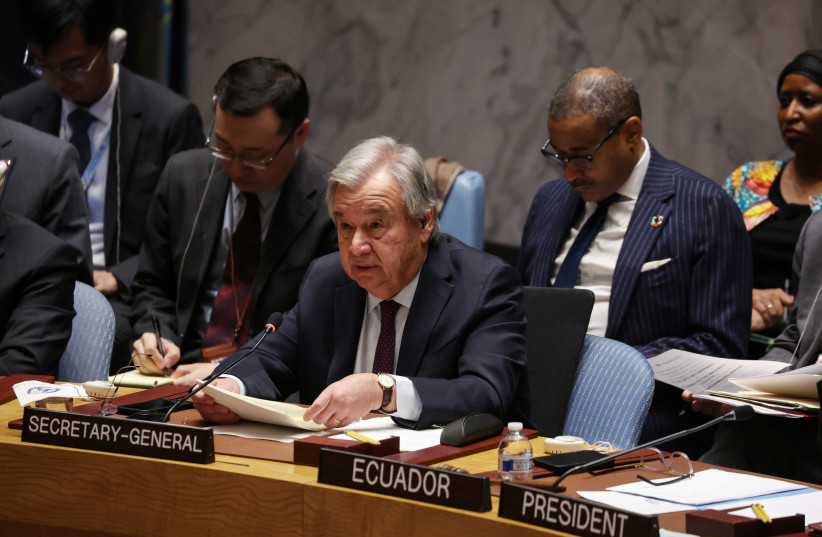The United States on Wednesday vetoed a UN Security Council resolution calling for a ceasefire in Gaza.
Washington had made clear it would only support a resolution that explicitly calls for the immediate release of hostages, US Deputy Ambassador to the UN Robert Wood said.
The 15-member council voted on a resolution put forward by 10 nonpermanent members that called for an “immediate, unconditional, and permanent ceasefire” in the 13-month conflict and separately demanded the release of hostages.
Only the US voted against it, using its veto as a permanent council member to block the resolution.
“A durable end to the war must come with the release of the hostages,” Wood said. “These two urgent goals are inextricably linked. This resolution abandoned that necessity, and for that reason, the United States could not support it.”

The US had sought compromise, but the text of the proposed resolution would have sent a “dangerous message” to Hamas that “there’s no need to come back to the negotiating table,” he said.
The IDF’s response to the October 7 massacre has killed nearly 44,000 people and displaced most of the enclave’s population, according to the Hamas-run Gaza Health Ministry.
Security Council members criticized the US for blocking the resolution put forward by its 10 elected members: Algeria, Ecuador, Guyana, Japan, Malta, Mozambique, South Korea, Sierra Leone, Slovenia, and Switzerland.
“It is deeply regretted that due to the use of the veto, this council has once again failed to uphold its responsibility to maintain international peace and security,” Maltese Ambassador to the UN Vanessa Frazier said.
The text of the resolution “was by no means a maximalist one,” she said.
“It represented the bare minimum of what is needed to begin to address the desperate situation on the ground,” she added.
Experts on food security have warned that famine is imminent among Gazans.
US President Joe Biden, who leaves office on January 20, has offered Israel strong diplomatic backing and continued to provide it with arms while trying unsuccessfully to broker a ceasefire deal that would see hostages released in exchange for Palestinian security prisoners held by Israel.
After blocking earlier resolutions on Gaza, Washington abstained from a vote in March that allowed a resolution demanding an immediate ceasefire to pass.
A senior US official said Britain had put forward new language in the resolution that the US would have supported as a compromise, but it was rejected by the elected members.
Some members were more interested in bringing about a US veto than compromising on the resolution, the official said, accusing Russia and China of encouraging those members.
France
French Ambassador to the UN Nicolas de Rivière said the resolution rejected by the US had “very firmly” required the release of hostages.
“France still has two hostages in Gaza, and we deeply regret that the Security Council was not able to formulate this demand,” he said.
Chinese Ambassador to the UN Fu Cong said each time the US had exercised its veto to protect Israel, the number of people killed in Gaza had steadily risen.
“How many more people have to die before they wake up from their pretend slumber?” he asked. “Insistence on setting a precondition for a ceasefire is tantamount to giving the green light to continue the war and condoning the continued killing.”
Israeli Ambassador to the UN Danny Danon said the text was not a resolution for peace but rather “a resolution for appeasement” of Hamas.
“History will remember who stood with the hostages and who abandoned them,” he said.•
